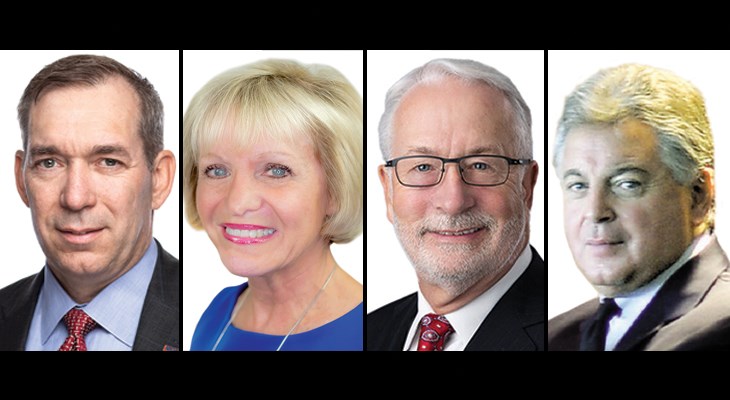Recent economic conditions have meant that the way the business community looks at interest rates has completely changed. After some 25 years of suppressed interest rates, suppressed institutional recessions and slowdowns, Valenti Capital LLC Chairman and World Capital Partners CEO Sam Valenti III says this is the first time the Federal Reserve does not have the ability to come to the rescue. One of the many effects from that change is the impact on M&A valuations.
"You've got to hold hands with people that are sellers because selling comes painfully to people and they don't want to believe that it's not the pricing of a year ago," Valenti says. "Buying means longer analysis, deeper analysis, lower prices paid — it sounds like it's self-serving, but that's because the cash flow just doesn't match up. Levels of indebtedness or not going to be three to one, four to one. It's going to be tough to get over two to one."
Complicating the issue is that, as Valenti points out during the Detroit Smart Business Dealmakers Conference, there had been a sense that whatever the economic challenge, it would resolve itself as quickly as the seasons change.
"If you're whole life is predicated on ever-increasing double-digit value increases, that all your buy-out deals have to return four times within five years on cash to cash, you're going to be in for a hard ride," he says. "I don't think inflation literally is a phenomena that's embedded in the system and going to last. What I do think is caution has come to make a visit, concern is there. The people that lend money; that's why you see so many private equity funds getting into private capital, and they'll learn their lesson — loaning money can be a dangerous business and a high interest rate doesn't always mean that you're going to get your money back. But what it does mean is your heads got to be on a swivel."
MSX International Group Chairman Fred Minturn says what's different in his world now is money can't be borrowed the way it used to.
"I was never not leveraged at five times," Minturn says. "I'd pay a high yield — I'd pay 12 percent — but I could always get five times. Now, you can't do that."
He says the key for acquisitions now is to keep going.
"I think there's a lot of pent-up demand for investment and you always get an open door when you're looking to sell something right now," he says. "But it's hard for the buyer to finance it."
BDO Consulting Group Managing Director, Business Restructuring Services, Robert Berdanier says he believes there's a return of equity as a concept.
"Move down the right side of the balance sheet, and — sorry, bankers out there — but that five times multiple really strikes a nerve," Berdanier says. "And as we see interest rates rise, balance sheets are getting compressed, the ability to service that debt is getting harder."
When you're not on the first rung of the ladder, this economy, with the residual effects from the pandemic, inflation and rising interest rates, is the worst of times for many early-stage companies, says BELLE Michigan Impact Fund Co-Founder and General Partner Carolyn Cassin.
"And so if you just have a dream of where you'd like to be but you don't have any experience, and most of all money, and you want to start a business, it's a very hard time," Cassin says.
Startups facing these challenges often don't know how to react, she says. So, to help them get their footing in this challenging environment, she's had to take them back to school and start analyzing with them and for them what the business model was and what the business model needs to be now in terms of how exactly they're going to survive this, because conditions are very different.
"A year or two ago it was a lot easier than it is right now to start a business," Cassin says. "Capital was easier to get at a cheaper rate. And so, people borrowed — they probably didn't borrow enough. They probably should have borrowed some more than they did. But now they're really struggling. And the business world is very different for them. We talk about pivoting all the time. It's not just turning right and turning left. You might have to head that way. It's just a very different market."
Valenti says, as someone who has operated through many cycles since the late 60s, says business leaders need to dig deeper to find solutions to today's challenges.
"When you leave here tonight, whatever you are advising, whatever you're running, whatever you own, whatever you're building, you have to take every single line item on your income statement and you have to decide, how can I make it more efficient? Not cheaper," Valenti says.
He says it's easier said than done. It takes examining every single every item, pro and con, and finding a way to make it stronger, finding the next customer and ways to be more valuable to them.
"You heard everything about relational capitalism up here, every single person has said, You've got to know your customer. You've got to know the people. You gotta know the potential acquisitions," he says. "Everybody here has done it. Everyone here is doing it. Guess what? There's another notch to that."




